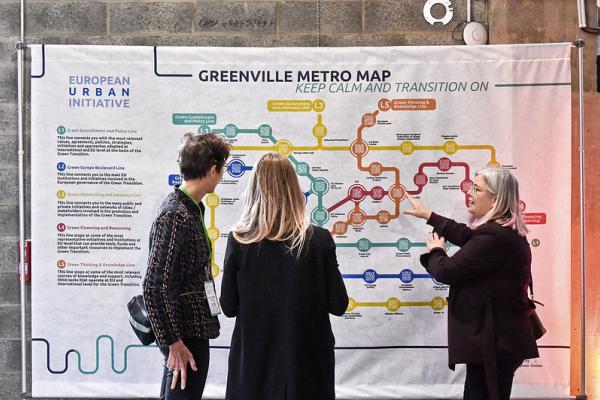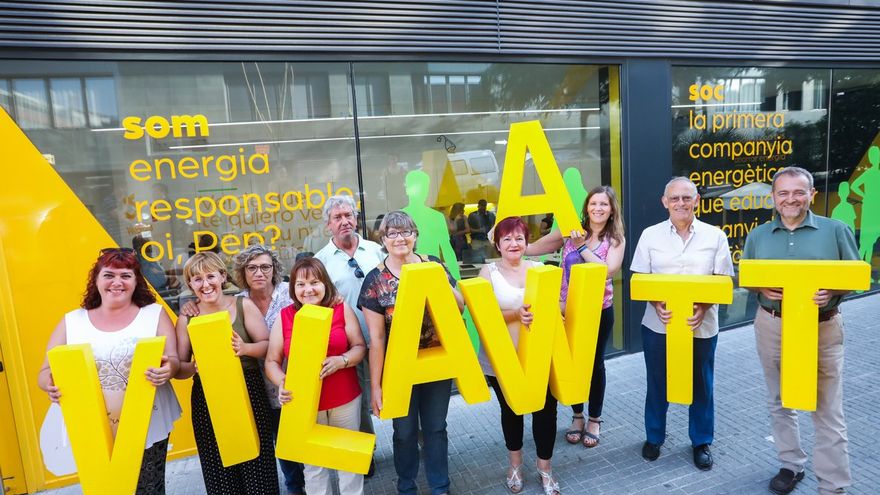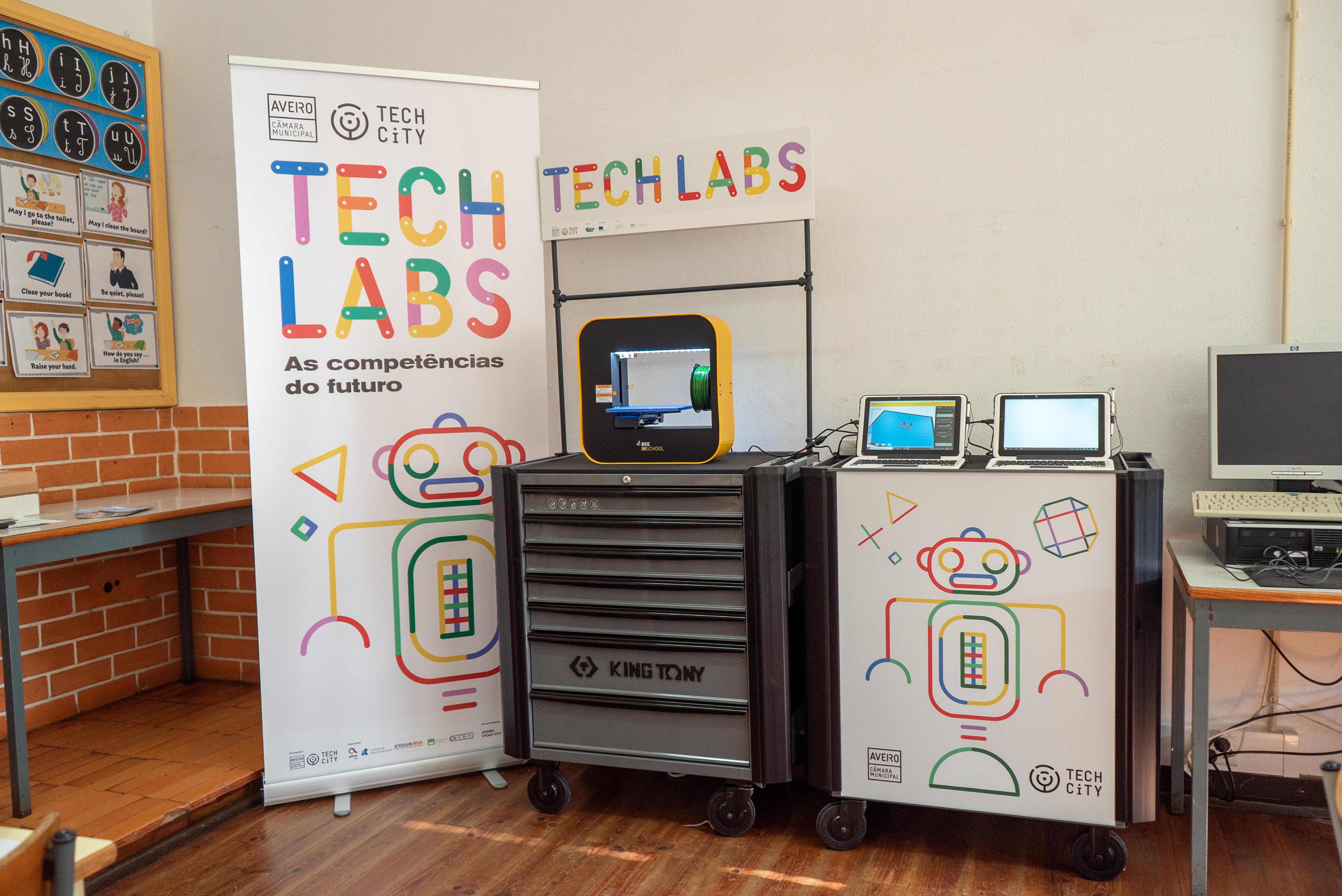
Navigating the future of urban economy: the role of skills in shaping green cities
Skills development for urban transformation
In the European Year of Skills, spanning from May 2023 to May 2024, understanding the vital role of skills in urban development is paramount. This article delves into how skill development intertwines with Cohesion Policy (CP), especially when looking at the hurdles contemporary urban areas face. Many urban areas are facing demographic shifts, such as aging populations and declining birth rates, with potentially critical consequences for urban environments and their communities. The urban dimension of the Cohesion Policy, a central element of the European Union’s strategy, plays a vital role in supporting skill development in cities to address these demographic challenges. It aims not only to enhance economic resilience, but also to equip urban economies with necessary skills for sustainable growth. This policy is crucial in helping regions and cities avoid falling into a talent development trap, which can deepen structural labor market inefficiencies and innovation shortfalls.
Many cities, as hubs of economic and social activity, are at the forefront of addressing these challenges. They are tasked with attracting and retaining talent, particularly in sectors critical for the green transition. The need for skills transcends traditional education and degrees, emphasizing the importance of diverse and inclusive labor markets, and a transition towards a greener economy model.
This article explores the various ways in which European cities are innovatively approaching skill development. These initiatives aim to future-proof urban economies and establish equal labor market access for all residents. By examining the lessons learned from these endeavors, the article sheds light on how essential skills are driving the growth, sustainability, and inclusiveness of our cities.
Cohesion Policy: skills for inclusive and sustainable regional growth
The primary objective of CP is to reduce the economic, social, and territorial disparities that exist within and between EU regions. It aims to improve labor market inclusiveness, provide equitable access to education and training, and support the integration of marginalized communities and third-country nationals. At its core, CP is deeply intertwined with the development of human capital – the skills and abilities of the workforce. This aspect of CP is particularly crucial in the current era, where skill development is essential for both individual and collective progress. By investing in skills among other provisions, CP ensures that all regions, particularly those that are less developed or transitioning, are equipped to participate effectively in the European economy. This investment takes various forms, from vocational training and educational programs to support for innovation and entrepreneurship at the city level through many instruments and initiatives that fund innovation in cities. These initiatives are designed not only to boost immediate employment opportunities but also to lay the groundwork for long-term, sustainable growth and shifts in the economy.
One of the critical challenges that CP addresses through its focus on skills is the mismatch between the skills available in the workforce and those demanded by the market. Many regions suffer from a lack of skilled workers in key sectors, which hampers their economic development and competitiveness. CP-supported programs aim to bridge this gap by tailoring skill development initiatives to the specific needs of each region, taking into account its unique economic landscape and potential growth areas. This approach ensures that the workforce is not only employable but also adaptable to changing economic conditions.
Moreover, CP places a strong emphasis on inclusive growth, recognizing that skill development should be accessible to all segments of society if we aim to achieve a just and green Europe that leaves no one behind. This includes supporting disadvantaged groups, such as long-term unemployed individuals, refugees and those with lower educational levels, to gain the skills necessary to enter or re-enter the workforce. Such inclusivity is vital for ensuring that the benefits of economic growth are widely shared and that no one is left behind in the quest for development.
In recent years, CP has increasingly focused on future-oriented skills, especially in light of the digital and green transition. This shift recognizes the rapidly evolving nature of work and the necessity for skills that match upcoming market demands. Investments in digital literacy, green technologies, and innovation are preparing European regions to not only face today's challenges but also to seize the future opportunities by preparing their work force for changes in the market paradigm.

Cities leading the way: navigating the green transition through innovative skills-based approaches
Many cities today face the dual challenge of transitioning to a green economy and creating inclusive, diverse labor markets. The experiences of four city projects, detailed in the UIA’s Just Transitions study - STEAM City in Aveiro, IGNITION in Greater Manchester, Passport4Work in Eindhoven, and Vilawatt in Viladecans - provide valuable insights into the intricacies of a skills-based approach.
In transitioning towards a green economy with the appropriate skills in place these cities overcame several barriers. These included the complexity of skills forecasting, the lack of transparency in the labor market, the challenge of aligning outdated definitions of green skills with modern requirements (spurring accreditation bottlenecks), and securing broad stakeholder support.
With regards to the complexity of skills forecasting, in Aveiro, the Labour Observatory conducts thorough labor market analyses to inform skill development for STEAM competencies (adding the “A” for Arts and creativity to the STEM domains of Science, Technology, Engineering and Maths). This proactive approach to skills forecasting addresses the digital transition and identifies specific qualification needs, filling gaps in the local labor market. Greater Manchester adopts a similar strategy through its GMCA Skills Intelligence Team, which collaborates with industry stakeholders to identify skills gaps, particularly in green technologies and retrofitting, and shape policy and employer support.
Addressing labor market transparency, Eindhoven’s Passport4Work project, through its innovative job matching platform, prioritizes skills over traditional credentials (such as diploma’s and CV’s) in the job matching process), particularly focusing on soft skills. This approach expands the talent pool, addressing labor shortages in critical sectors for the energy transition, such as construction and technology

Finally, the Vilawatt project in Viladecans exemplifies a focused approach to local energy transition, emphasizing the development of new skills and business know-how. A key component of the project is the establishment of a Public Private Citizen Partnership (PPCP), which plays a crucial role in governance and operational aspects of energy efficiency, for instance through retrofitting older residential buildings. Vilawatt has created learning communities that are instrumental in equipping both citizens and local businesses with essential skills for a sustainable energy future.Together, these (and many other) cities illustrate the need for a transition to a skills-based labor market to enable the green transition. The emphasis should be on upskilling and reskilling, particularly for vulnerable groups, to ensure that the workforce aligns with the new demands of a sustainable economy while also making sure that nobody gets left behind. This approach not only supports the green transition, but also fosters social inclusion, making these initiatives pivotal for sustainable urban development.
10 Key Lessons from City Experiences
Many cities transitiong to a green economy have learned valuable lessons, crucial for informing future urban development and policymaking. By examining the experiences of cities like Greater Manchester, Eindhoven, Aveiro, and Viladecans, we can identify key insights that could inspire other regions.
- In-depth occupational analysis of skills
In Greater Manchester there has been a concentrated effort to identify essential green skills pivotal for its infrastructural transformation. This effort, led by the Skills Intelligence Team, involves thorough and specialized research targeting specific occupations required for the development of low carbon buildings. The insights gained from this research have been instrumental in determining the most critical retrofitting skills, enabling the city to prioritize occupations at the highest risk of skill shortages. This strategic approach provides a valuable framework for other urban areas embarking on similar paths towards green transformation. Similarly, Eindhoven's detailed occupation analysis related to the Dutch energy transition offers vital insights for developing corresponding reskilling and upskilling programs. This tailored approach, mirroring the specific needs and demands of the region, is extremely adaptable, offering a model for other regions navigating their own green transitions.
- Establishing a dedicated skills forecasting entity
A key takeaway from the experiences of Aveiro and Greater Manchester is the successful establishment of dedicated forecasting entities: Aveiro’s Labour Observatory and Greater Manchester’s Skills Intelligence Team. These organizations play a pivotal role in monitoring the job profiles in high demand over the medium to long term, significantly contributing to the creation of green and sustainable jobs. Their focus is not only on identifying current skill gaps but also on anticipating future needs, which allows for the strategic reorientation of training within the local economy, particularly in areas facing skill shortages. The institutionalization of skill needs analysis through such entities enables the formulation of effective labor market policies and training programs.
- A structured approach to skills forecasting
Viladecans has been pioneering in defining professional profiles for the circular economy using the European Classification of Skills, Competences, and Occupations (ESCO). This method ensures data transferability and contributes to labor market transparency, providing a scalable model for cities transitioning to more sustainable economic practices. Similarly, Eindhoven, a city in the Netherlands recognized for its high-tech industry, has effectively utilized the ONET skills language for job matching and eLearning modules through its Passport4Work platform. By integrating the ONET skills language into the platform, it ensures a shared, common understanding of skills, facilitating effective job matching within the region and beyond. Additionally, the emphasis of ONET on broad and transferable skills promotes movement of workers between different industry sectors, potentially reducing skill shortages. These approaches highlight the importance of using structured and standardized methods in forecasting skills.
- New professional certification for the green economy
Viladecans is leading the way in professional certification for green jobs. By creating new certificates that encompass the nuances of green economy professions like photovoltaic installations and environmental management, Viladecans ensures that individuals can both acquire and demonstrate relevant skills and knowledge. This approach, which includes practical training modules, addresses the gap in traditional certification processes and is pivotal for cities investing in the green economy.
- Tailored approaches in data collection
Aveiro, a Portuguese city with a strong focus on tech and innovation, demonstrates the necessity of a flexible data collection approach in skills forecasting. The city’s Labour Observatory had to adapt its methods to gather data from firms of various sizes, ensuring a comprehensive understanding of the local labor market. This adaptability is key for cities looking to fully grasp their unique economic landscapes.
- Linking forecasting data to education
A consistent lesson across these cities is the importance of linking forecasting data directly to education. Aveiro and Greater Manchester stand out in this regard, with Aveiro integrating forecasting activities into training programs to increase participation rates, and Greater Manchester linking skills from forecasting models to the European Qualification Framework, effectively translating labor market needs into educational curricula.
- Continuously updating forecasting models
An additional lesson is the importance of continuously updating and revising skills forecasting to keep pace with rapidly evolving industries. Cities learned that static models quickly become outdated. Ongoing research and feedback loops with industry experts and workers are crucial for keeping the skills forecasting relevant and effective. This approach ensures that the workforce development strategies remain aligned with the current and future needs of the labor market, making the transition to new economic paradigms, such as the green economy, more seamless and efficient.
- Empowering vulnerable citizens
Another crucial lesson is empowering vulnerable citizens through skills forecasting, as seen in Viladecans and Eindhoven. In Viladecans, orientation and support around forecasting activities and professional certification processes have strengthened jobseekers' employability, while Eindhoven's Passport4Work platform offers structured professional development through targeted assessments and eLearning modules.
- Accessible and comprehensible information
A significant lesson from Eindhoven and Viladecans is the emphasis on making skills forecasting information accessible and comprehensible, particularly for vulnerable jobseekers. In Eindhoven's Passport4Work platform, the complexity of information related to skills and their behavioral aspects is simplified to the B1 language level, ensuring that it is understandable to a broader audience. This approach is critical for engaging and including those distanced from the labor market. Similarly, Viladecans utilizes accessible resources like wiki technology and occupational fact sheets in its XaloCompetencias project, making key job and skill information more relatable and useful for its citizens.
- Multi-stakeholder collaboration
Eindhoven’s approach also highlights the benefits of a collaborative, multi-stakeholder approach. By joining forces with other labor market regions and projects, the city has significantly enhanced the impact of its forecasting work. This model of collaboration involves other labour market regions as well as national government to foster institutionalization of valuable project outcomes.
’’These key insights combined provide a roadmap for cities to effectively respond to changing labor market dynamics. These lessons inform future urban development and policymaking, guiding cities towards more inclusive and dynamic labor markets.

Skills-based urban strategies: shaping inclusive and sustainable urban futures
Innovative experiments across European cities have highlighted the emergence of a skills-based approach in addressing urban challenges and fostering sustainable growth. The lessons learned from these initiatives demonstrate the crucial impact of adaptable and responsive approaches to rapidly evolving labor market needs. The city experiences show that this is not merely an isolated policy area; Instead, it is a core aspect of broader urban strategy, integral to shaping the future of urban environments, making it a key element in the pursuit of inclusive labor markets.
Further Reading
There is a wealth of resources available on this topic on Portico, the urban knowledge platform. For your convenience, a few relevant publications are listed below as a starting point:
Newly published article: Four innovative examples of EU cities supporting the green skills transition
Just Transitions study: Skills for a green future
Case studies:
Skills for a Green Future: Greater Manchester Case Study
Skills for a Green Future: Aveiro Case Study
Skills for a Green Future: Eindhoven Case Study
Skills for a Green Future: Viladecans Case Study
Urban Agenda for the EU
